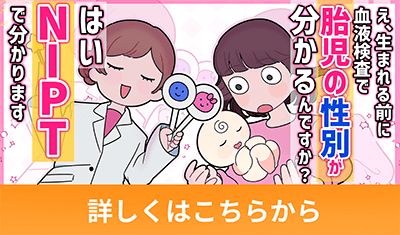Introduction
Understand the role of thyroid hormones and, if you have any concerning symptoms before pregnancy, check your thyroid function. If you find out you are pregnant, visit a gynecologist early to check your thyroid function to minimize the impact on your baby.
Additionally, if you have thyroid disease, you may need to change medications or adjust dosages during pregnancy and childbirth.
What are Thyroid Hormones?
Thyroid hormones are secreted from the thyroid gland, an organ shaped like a butterfly located below the Adam’s apple. Thyroid hormones play a role in stimulating the body’s metabolism.
There are three types of thyroid hormones: thyroid-stimulating hormone (TSH), FT3, and FT4. TSH controls the secretion of thyroid hormones. When FT3 and FT4 levels decrease, TSH secretion increases, and conversely, when FT3 and FT4 levels increase, TSH secretion decreases.
Diseases Caused by Abnormal Thyroid Hormone Levels
Abnormalities in thyroid hormones can be divided into two categories: “excessive secretion” and “insufficient secretion.” Let’s explain each in turn.
When Thyroid Hormone Levels are Too High
The condition where the secretion of FT3 and FT4 is excessively increased is called hyperthyroidism.
In hyperthyroidism, the body’s metabolism becomes overactive. As a result, even with adequate food intake, there is weight loss, palpitations, rapid heartbeat (tachycardia), irritability, easy fatigue, and hand tremors. There may also be swelling below the Adam’s apple where the thyroid gland is located.
Common diseases include Graves’ disease, toxic multinodular goiter, and thyroid adenoma. In rare cases, it can be caused by excessive intake of medication or iodine.
When Thyroid Hormone Levels are Too Low
The condition where the secretion of FT3 and FT4 is too low is called hypothyroidism.
In hypothyroidism, facial expressions become less pronounced, and speech slows down. There is a decrease in energy, the voice may become hoarse, and there can be swelling of the eyelids, eyes, and face. The skin may become dry, and hair may thin. It is also common for menstrual cycles to become irregular, with some people experiencing heavy menstruation (menorrhagia) or absence of menstruation (amenorrhea).
A common disease associated with hypothyroidism is Hashimoto’s disease. It can also occur if the thyroid gland is completely removed due to cancer or tumors.

Pregnancy and Thyroid Hormones
Thyroid hormones are essential for the growth of ‘follicles.’ When the secretion of thyroid hormones is too high (hyperthyroidism), the number of days until ovulation is shortened.
Conversely, when the secretion of thyroid hormones is too low, the follicles do not develop sufficiently, leading to anovulatory menstruation or amenorrhea. If the secretion of thyroid hormones is disrupted, the follicles do not mature properly, reducing the likelihood of pregnancy.
Can You Get Pregnant with Thyroid Disease?
Even if you have thyroid disease, it does not make pregnancy difficult if properly treated. Pregnancy is possible, but there are precautions to take.
If you have a thyroid condition, ensure you receive appropriate treatment before pregnancy to control the secretion levels of thyroid hormones within the normal range. It is known that untreated thyroid disease is less likely to cause infertility. Furthermore, if you continue treating thyroid disease during pregnancy, you can reduce the risk of miscarriage, preterm birth, gestational hypertension, and preeclampsia to almost the same level as those without thyroid disease.
Thyroid Hormones During Pregnancy
During pregnancy, the required amount of thyroid hormones increases by about 20-50%. This is because, in the early stages of pregnancy, when the baby’s thyroid and brain are not fully developed, the baby cannot produce thyroid hormones on its own. The mother’s thyroid hormones are delivered to the baby through the placenta. As some of the thyroid hormones are broken down when passing through the placenta, more hormones need to be secreted compared to when the mother is not pregnant.
Impact of Thyroid Disease on the Fetus
In cases of hyperthyroidism, there is an increased risk of miscarriage, preterm birth, and preeclampsia. If not properly treated, it is said that the baby’s growth may be delayed compared to the progression of gestational age. The risk of gestational hypertension also increases, so caution is needed.
Additionally, if the mother’s blood has high levels of anti-TSH receptor antibodies (TRAb), the baby’s thyroid may be stimulated, leading to hyperthyroidism. The effect of the mother’s TRAb usually improves naturally around three months after birth, so excessive worry is not necessary.
For mothers with hypothyroidism, there is a possibility of thyroid hormone deficiency in the early stages of pregnancy. It has been reported that a deficiency in thyroid hormones increases the likelihood of miscarriage and developmental disorders in the baby’s mental, intellectual, and neurological development.
For example, there have been reports of decreased IQ, the onset of epilepsy, and an increased frequency of taking antipsychotic and anti-anxiety medications after puberty.
Fetal Health and NIPT (Non-Invasive Prenatal Testing)
For those concerned about chromosomal abnormalities or other diseases in their baby, we recommend NIPT (Non-Invasive Prenatal Testing). NIPT (Non-Invasive Prenatal Testing) is a prenatal test that can be diagnosed with just a blood sample from the mother. It is a non-invasive test for the baby, with an accuracy rate of 99%.
NIPT (Non-Invasive Prenatal Testing) assesses the possibility of chromosomal abnormalities in the baby, such as Down syndrome (trisomy 21), trisomy 18, and trisomy 13, and determines whether the risk is “high” or “low.” To definitively diagnose chromosomal abnormalities, more specialized tests such as amniocentesis or chorionic villus sampling are required, but these tests carry risks of infection and miscarriage, making them less accessible for routine screening.
NIPT (Non-Invasive Prenatal Testing) is a highly recommended prenatal screening method as it places minimal burden on both the mother and the baby while checking the baby’s health.
For those who want to learn more about Hiro Clinic NIPT and NIPT (Non-Invasive Prenatal Testing), please read this article.
Treatment of Thyroid Disease
There are several precautions for pregnancy and childbirth in individuals with thyroid diseases.
If You Have Thyroid Disease Before Pregnancy
If you are taking thyroid hormone medication and wish to become pregnant, it may be necessary to switch to medications that have minimal effects on the baby. To minimize the impact on the baby, it is advisable to consult with your doctor in advance.
Due to the increased need for thyroid hormones during pregnancy, it is necessary to adjust the dosage according to the pregnancy’s progression. Around the 7th week of pregnancy, the thyroid starts to experience more strain, so it is important to see your doctor early once you know you are pregnant to adjust the dosage and keep TSH within the appropriate range.
Additionally, if high thyroid hormone levels are left untreated, the body may be unable to cope with stress from morning sickness, childbirth, or cesarean section, leading to a decrease in the function of all organs and potentially resulting in a thyroid storm. Thyroid storm can lead to decreased heart and liver function, and about 10% of patients may die from this condition. If a pregnant woman develops thyroid storm, both the mother and the baby are at a higher risk of death, so it is crucial to control thyroid hormone levels within the proper range.
If You Develop Thyroid Disease During Pregnancy
If a thyroid disease is diagnosed during pregnancy, start treatment as early as possible. By taking the prescribed medication properly and controlling the secretion of thyroid hormones within the target range, you can minimize the impact on your baby’s growth and development.
While it is natural to feel anxious, it is important to continue appropriate treatment in consultation with your primary doctor.
Effects of Treatment on Fetal Malformations
If the mother takes a medication called “Methimazole” (also known as “Mercazole”) during the early stages of pregnancy (up to 13 weeks and 6 days), there is a higher risk of the baby developing birth defects such as umbilical, intestinal, and scalp abnormalities. However, if the father takes this medication, it does not affect the baby.
The effects on the baby when Methimazole is taken during the mid-pregnancy period are not well understood.
If you wish to become pregnant, it is necessary to switch to medications that have minimal effects on the baby before conception. It is advisable to consult with your thyroid disease specialist in advance.

Dietary Precautions
Individuals with thyroid disease are more susceptible to the effects of iodine, which is a key component of thyroid hormones. Therefore, it is advisable to avoid consuming seaweed products actively.
When thyroid hormone secretion is reduced, metabolism slows down, making it easier to gain weight. It is important to pay attention to weight management.
Conclusion
Thyroid hormones are essential for pregnancy, childbirth, and the growth and development of the baby. Having a thyroid disease does not mean you cannot become pregnant, but it can make it more difficult to conceive and increase the risk of miscarriage. Therefore, it is important to receive appropriate treatment.
At Hiro Clinic NIPT, we provide comprehensive support from doctors and staff who are well-versed in NIPT (Non-Invasive Prenatal Testing), ensuring that anyone can undergo consultation and NIPT (Non-Invasive Prenatal Testing) with peace of mind.
If you are concerned about chromosomal abnormalities in your baby, please consider the testing offered by Hiro Clinic NIPT.
【References】
- MSD Manual Professional Edition – Hyperthyroidism
- MSD Manual Professional Edition – Hypothyroidism
- Japan Endocrine Society – Thyroid Storm
Article Editorial Supervisor

Dr Hiroshi Oka
NIPT specialist clinic, MD
Graduated from Keio University, School of Medicine
 中文
中文






















